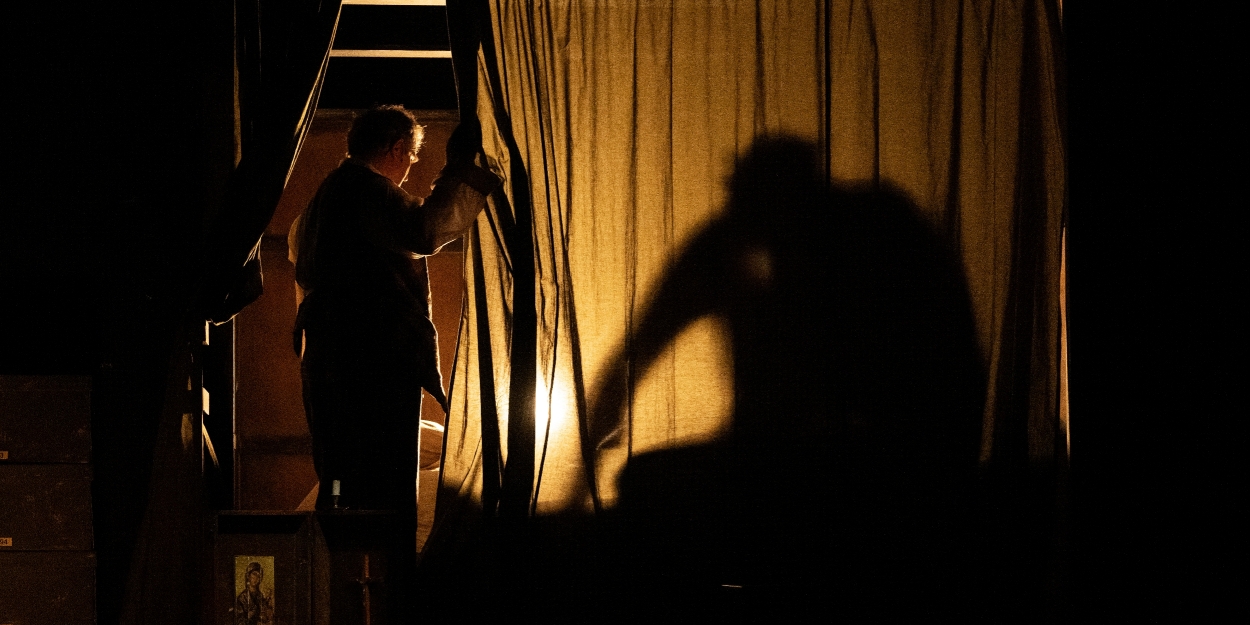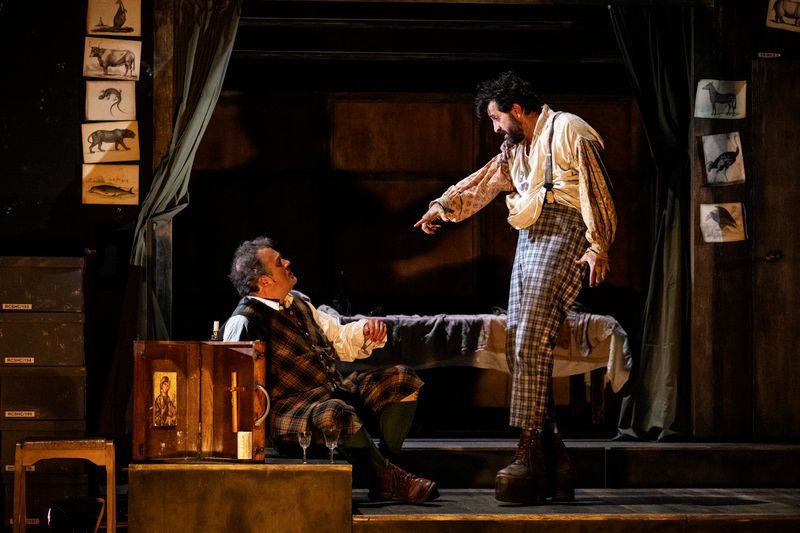Review: GIANT, Royal Opera House
Sarah Angliss' new opera runs until 15 March

![]() Where does a body start and a human being end? The story of Charles Byrne, the so-called “Irish Giant” is the diving board off of which composer Sarah Angliss’ debut opera leaps. What are we diving into? A grey philosophical swamp where morality and metaphysics mix and blur into each other.
Where does a body start and a human being end? The story of Charles Byrne, the so-called “Irish Giant” is the diving board off of which composer Sarah Angliss’ debut opera leaps. What are we diving into? A grey philosophical swamp where morality and metaphysics mix and blur into each other.
The real-life Byrne died in 1780s from giantism. A celebrity freak show exhibit paraded around England, only surgeon John Hunter offered a faint glimmer of compassion through friendship. Or was he masquerading his true intentions to dissect Byrne’s body to quench his scientific curiosity? He solemnly declares his desire to unlock “the puzzle of your bones” against Byrne’s wishes to have a Christian burial.
Giant’s pulsating heart lies in the murky interplay between flesh and faith: Hyemi Shin’s set design evokes an operating theatre, chalkboards are etched with anatomical drawings of limbs and organs are lit by cold clinical light. But Byrne’s religious faith is a metaphysical counterpoint glowing above it. Karim Sulayman’s tender voiced Byrne is lit in soft sepia, his shadow looming tall behind him. In platform boots he towers over the rest of the cast but is kept heart wrenchingly isolated from them.
Angliss’ spiky score and sound design draws out that tense dichotomy. Dissonant percussion, bells, xylophones, and a snare imbue the score with a tactile texture. Live electronics, including a cameo form a theremin, pings rhythmic sparks shimmering up and down your nervous system: The icy world of the empirical. A lone recorder humming a sweet melody disrupts it with its warm solace of humanity. Byrne’s spirit, the ghost in the machine.

You watch it as you would study a scientific specimen, fascinated by its oddities, curiosity sparked, but desperate to know more. It’s not a bad thing that none of its themes are quite hammered home. It’s up to us to decode and decipher the morality of Jonathan Gunthorpe’s sturdily voiced John Hunter and decide if the ends justify the morally knotty means. For Angliss, and librettist Ross Sutherland, Hunter is not a villain, but not a hero either. Gunthrope is remarkable at navigating his depth.
Unsurprisingly Hunter gets his way via the dark world of clandestine grave robbing. Byrne’s body was on display at the Royal College of Surgeons in Lincoln's Inn Fields until last year though it remains in the collection. Should we should shudder at the cruel voyeurism or marvel at scientific progress?
Giant plays at the Royal Opera House until 15 March
PhotoCredit: Camilla Greenwell
Reader Reviews
Videos

